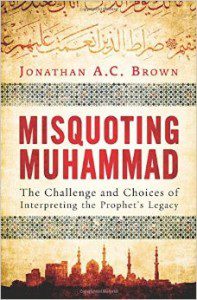John W. Kiser, Commander of the Faithful: The Life and Times of Emir Abd el-Kader (Rhinebeck, NY: Monkfish Book, 2008), 365 pages.
In these weeks following the 10th anniversary of 9/11, Patheos has wisely chosen a book club selection that highlights the life of a Muslim held in high-regard on the world stage — in this case the 19th-century world stage. Too much Christian-Muslim dialogue is characterized by a lack of historical knowledge, and this book seeks to make a contribution toward grounding such discussions not in abstract theory, but in the surprising and often hopeful possibilities that history shows us are possible — that is, possible because they have already happened and hence could happen again. Some scholars call this sort of perspective “biography as theology.” I will confess that I was unfamiliar with Emir Abd el-Kader before reading this book, but I am grateful to John Kiser for bringing this story to the attention of myself and others.
Abd-el-Kader (1808-1883) became famous for heroically and honorably leading the struggle for Algerian Independence from France. The extent to which he was well-known can be seen in that, fascinatingly, there is a town in Iowa named after him: Elkader (1). President Abraham Lincoln also spoke highly of him (2), and De Tocqueville called him “a Muslim Cromwell” (57).
John F. Kennedy, commenting on Algeria’s eventual independence, said, “The most powerful force in the world today is neither capitalism nor communism nor the guided missile, but [humanity’s] eternal desire to be free and independent” (328). So one could argue that the Arab Spring the world has recently witnessed owes much to historical figures such as Abd el-Kader.
Abd el-Kader is a prime example of how tragic it is that the first Muslim that comes to far too many Christian’s minds is Osama bin Laden. A similarly tragic result would be if Muslims thought all Christians were like Timothy McVeigh, the Oklahoma City bomber. We owe it to ourselves and our children to learn about the best of one another’s traditions. Jesus — who called us to “love our enemies” — spoke of this dynamic as learning to “love your neighbor as yourself.”
The Rev. Carl Gregg is the pastor of Broadview Church in Chesapeake Beach, Maryland. Follow him on Facebook and Twitter.
This book review is a part of the Roundtable at the Patheos Book Club. Visit the Book Club for more free resources related to this book.












